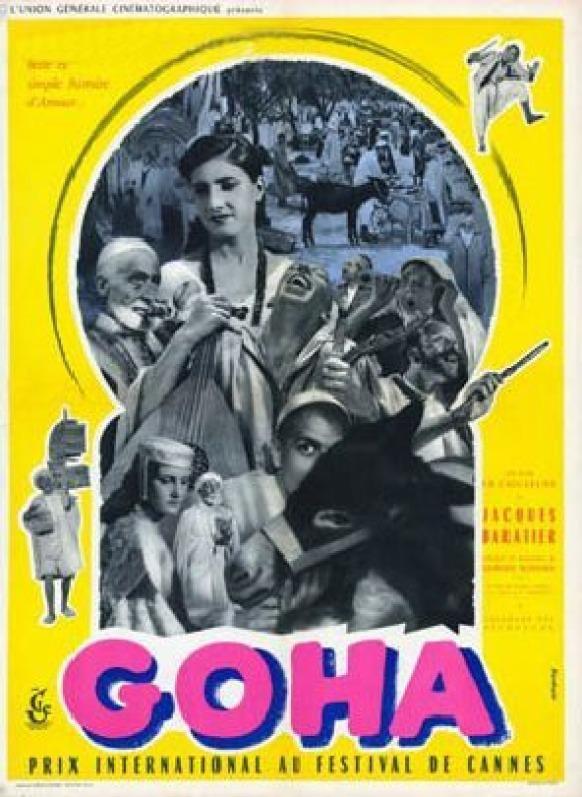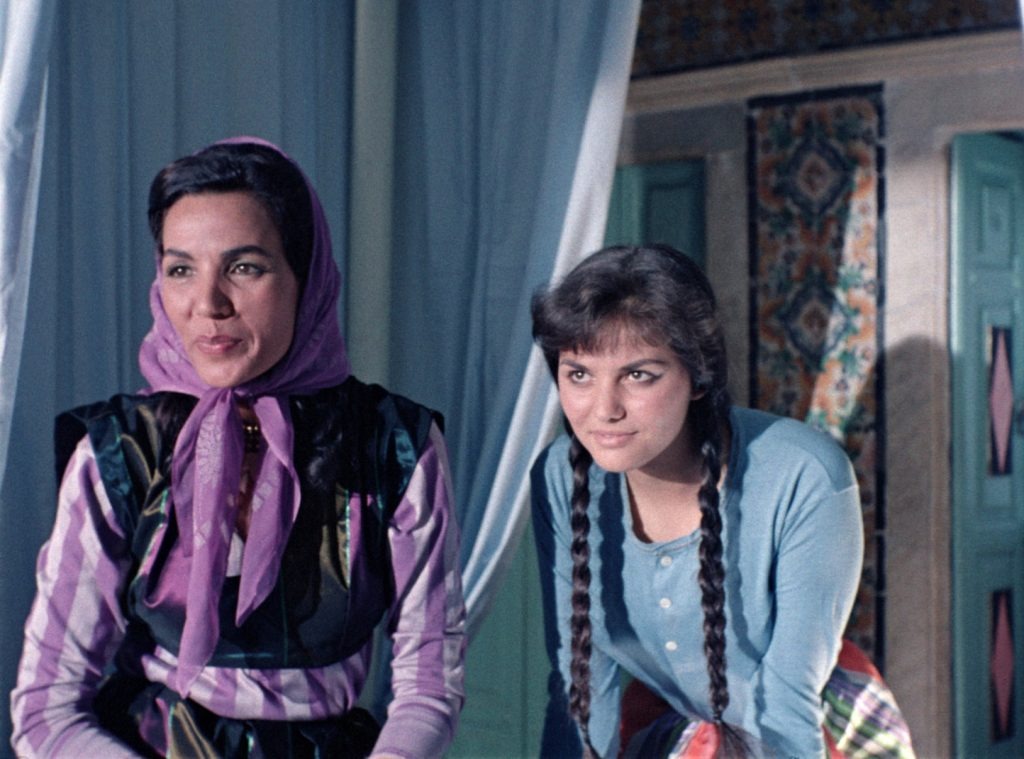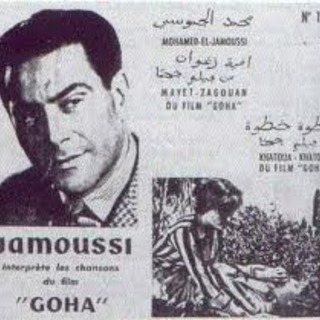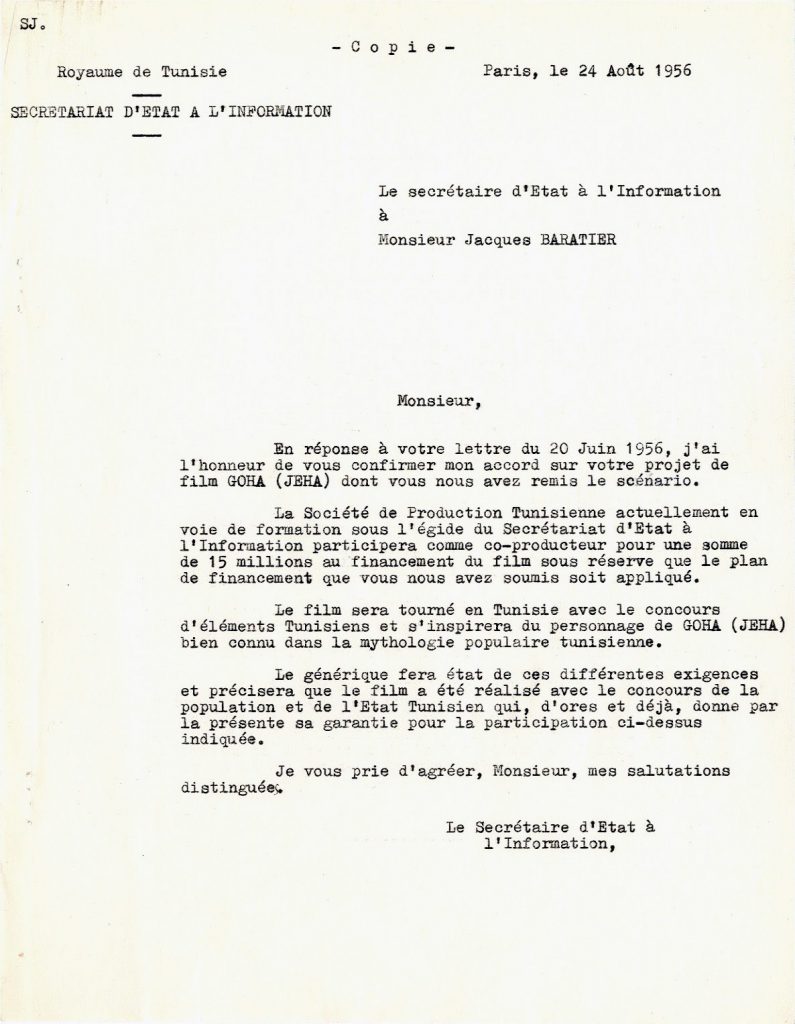When Jacques Baratier’s Goha premiered in 1958, it marked a turning point for Tunisian cinema. Starring a young Omar Sharif in the title role, alongside Zina Bouzaïane (Fulla), Lauro Gazzolo (Taj’El Ouloum), Hassiba Rochdi (Fulla’s aunt), Fatma Guedicha(Anissa), Zohra Faïza (Farida), and a debuting Claudia Cardinale (Amina), the film was the very first feature produced after Tunisia’s independence.
The project was born in the early days of nation building. In Tunisia, a decree issued on May 31, 1956 established a State Secretariat for Information in charge of all matters related to the press, radio, television, and cinema. In a letter dated August 24, 1956, the Secretary of State for Information informed the director that “the Tunisian production company currently being formed under the aegis of the Secretariat for Information will participate as a producer, contributing 15 million francs to the film’s budget.”
At the time, Tunisia’s film industry was barely in its infancy—little more than improvised studios, without a single laboratory. In 1957, SATPEC (the “Société anonyme tunisienne de production et d’expansion cinématographique”) was officially founded as a state-backed company to develop a national film infrastructure. By the end of 1958, it was still struggling to take shape. Yet it was Goha that would forever claim the title of the first Tunisian feature-length film.
In reality, the film was a French–Tunisian coproduction. But Baratier gifted it to Tunisia, and it was under the Tunisian flag that Goha entered the Official Competition at Cannes, where it won the Prix Le Premier Regard – Un Certain Regard.
Unusually, the film was shot in two versions—one in French, one in Arabic. Every scene was filmed twice, once in each language. According to Diane Baratier, the director’s daughter, her father made this choice as a gesture of friendship and equality between cultures.

And Goha would prove to be a launchpad for two major stars. Omar Sharif, who had been discovered in 1954 by Youssef Chahine and given his first role in Ciel d’enfer, was only 22 when Jacques Baratier noticed his photograph in a Cannes magazine and persuaded him to embody Goha—a character far from his own nature. It would be Sharif’s ninth screen role, and his contract, signed in August 1956, engaged him for “thirteen weeks, with possible extension” for a fee of one million old francs, to be paid in five installments. Claudia Cardinale, then completely unknown, appeared for the very first time on screen as Amina, Fulla’s maid.

Filming began on March 14, 1957, and lasted fifteen weeks across locations in Hammamet, Dar Chaabane El Fehri, Tunis, Ras El Djebel, Djerba, Kairouan, and Sidi Bou Saïd.
Locals still remember the excitement. One former extra recalled on social media:
“I vividly remember the film, partly shot in Dar Chaabane El Fehri, where I was hired without my parents’ knowledge as an extra for one day, alongside many boys my age, in scenes repeated endlessly throughout the day (…). The most striking sequence for us locals was filmed in the square of the neighborhood once called Houmet Boubkir, named after the marabout Sidi Boubker, whose mausoleum is clearly visible in the film. For a brief moment, Dar Chaabane El Fehri turned into a Cinecittà: a town in celebration, where the joy of the young mingled with that of their elders, all enchanted by the magical world of cinema—especially at a time when the country had only just emerged from colonial rule.”
The film’s songs were performed by Mohamed Jamoussi.

Goha premiered in Tunis on April 15, 1958 at the Le Paris cinema before opening in France on May 6, 1959.
The negatives then vanished for decades, only to be rediscovered in a Gammarth studio. The French Film Archives of the CNC film, working with Diane Baratier, the filmmaker’s daughter, Jacques Baratier Association, and Tunisia’s Ministry of Cultural Affairs, restored both the Arabic and French versions.
The restored film returned triumphantly to the Cannes Classics section in 2013, where Claudia Cardinale and Tunisian director Férid Boughedir attended the screening. Later that year, it was shown at the Lumière Festival in Lyon, and in March 2018 it was chosen as the inaugural film of the Tunisian Cinematheque, in the presence of Claudia Cardinale and the director’s widow.
Synopsis
Goha is a poor, naïve boy who knows nothing of life. He spends his days chasing shadows instead of working, earning the scorn of his neighbors. Living nearby is Taj-El-Ouloum, a revered scholar who decides to take a new wife. His household selects for him a very young bride named Fulla. Trapped in the emptiness of her new life, she finds solace in Goha, and the two fall in love. When Taj-El-Ouloum learns of the affair, he repudiates Fulla and sends her back to her father. Goha, disgraced, is cast out of his home and becomes the shame of the village.
To watch the film:
https://www.youtube.com/watch?
Neïla Driss









